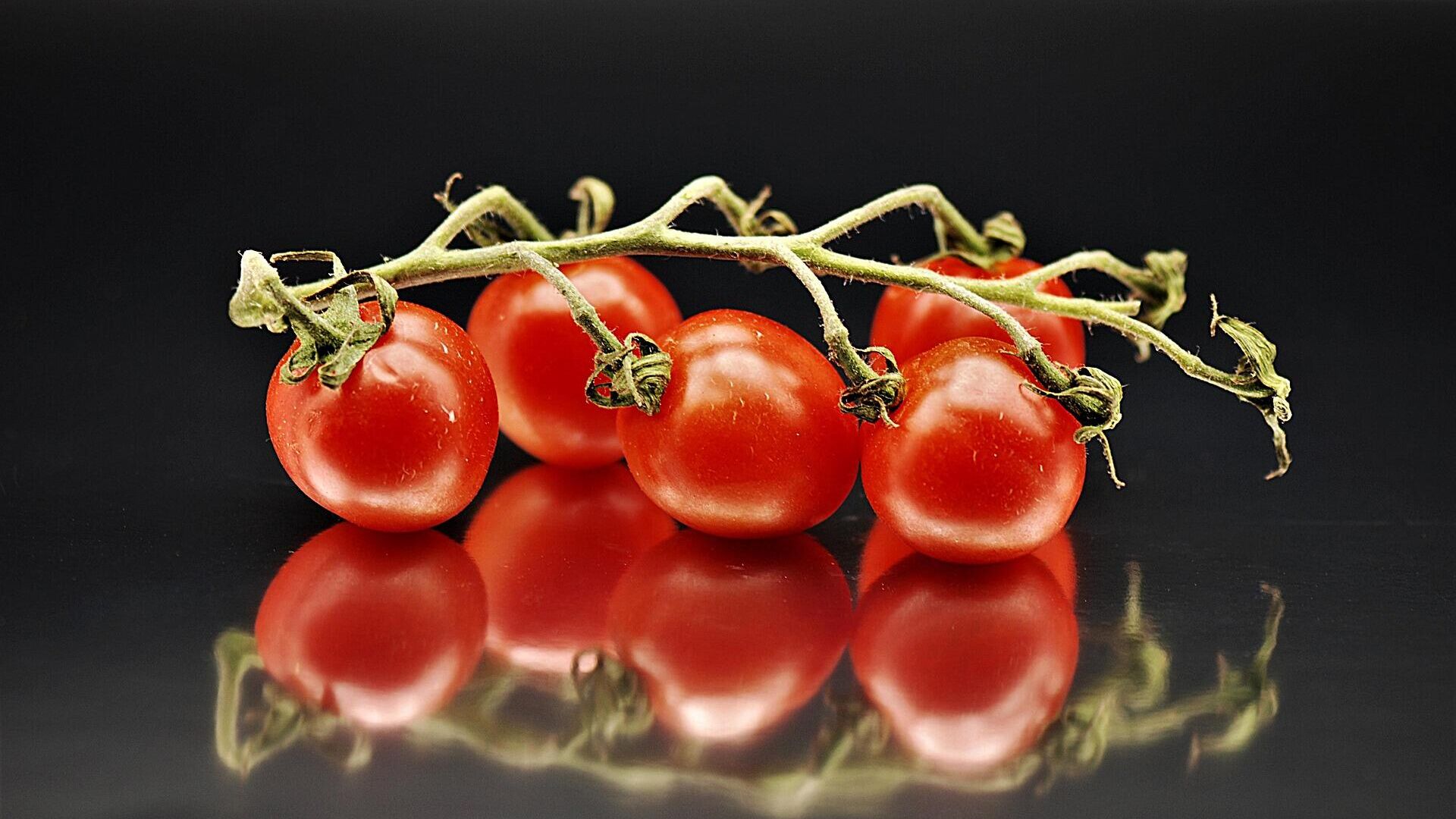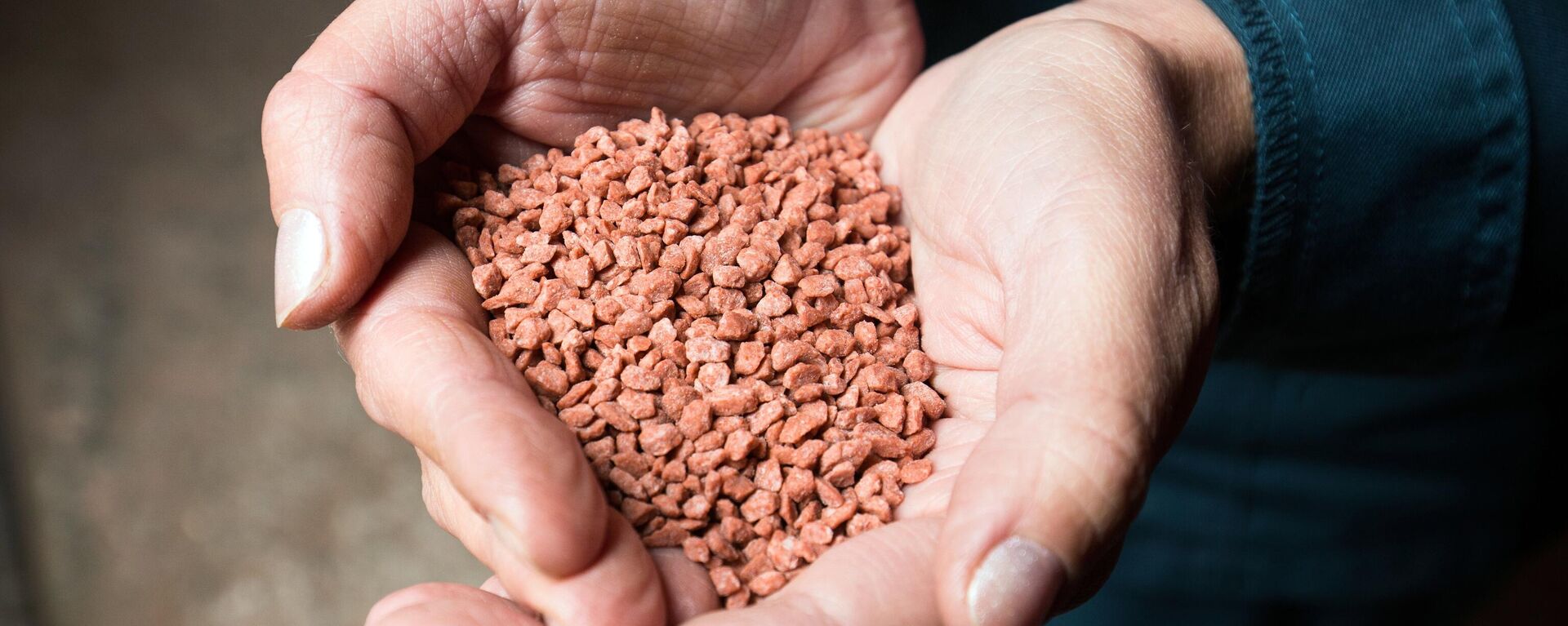https://sputnikglobe.com/20220814/water-woes-force-ketchup-prices-up-as-drought-reduces-california-tomato-crop-1099573996.html
Water Woes Force Ketchup Prices Up as Drought Reduces California Tomato Crop
Water Woes Force Ketchup Prices Up as Drought Reduces California Tomato Crop
Sputnik International
For six successive years, the tomato crop in California – a world leader in the production of processing tomatoes – has been below the production peak of 14.4... 14.08.2022, Sputnik International
2022-08-14T10:53+0000
2022-08-14T10:53+0000
2022-08-14T10:53+0000
americas
us
california
tomatoes
drought
fertilizer
https://cdn1.img.sputnikglobe.com/img/07e5/0b/08/1090577357_0:34:1921:1114_1920x0_80_0_0_982ee7a2c05e42ab1cb95efe386a2018.jpg
Prices on tomato-based products like ketchup and salsa sauce are set to soar as this season’s California crop is under threat of being decimated by a water crisis and higher agricultural inputs, Bloomberg reported.A global leader in production of canned tomatoes, the US state is reeling from the worst drought in 1,200 years.As the water crisis grips the region responsible for a quarter of the world’s tomato output, it is starting to have an impact on prices of tomato-based products, such as tomato sauce and ketchup. The two have become frontrunners in the US food inflation race, which is currently witnessing price increases not seen in over 40 years and occurring across food categories, ranging from fresh fruits (8.5%) to fish and seafood (12.2%).The skyrocketing energy costs are one of the main culprits driving up food prices.‘Farm Inflation’Growers are having to grapple with not only restrictions limiting groundwater use in California, but soaring costs for farm labor, fuel, and fertilizer.For example, for Fresno County-based grower and processor Woolf Farming it now costs around $4,800 an acre (43,560 square feet) to grow and harvest a tomato crop compared with $2,800 a decade ago, according to Rick Blankenship, vice president of farming operations.Even the all-time-high negotiated rate of $105 a ton for this season’s crop of tomatoes may stop short of covering the industry’s challenges.California’s processing tomato crop is anticipated to fall below the US Department of Agriculture’s (USDA) 11.7-million-ton estimate. Looking ahead, the forecast does not appear to be promising, as higher temperatures are expected to reduce the supply of processing tomatoes in key regions in the next few decades, according to a study published in Nature Food.The global supply of food and fertilizers needed to grow crops has also been suffering serious disruptions due to the introduction of sweeping anti-Russia sanctions by Western countries over the crisis in Ukraine.In a domino effect, the self-inflicted economic measures have impeded the ability of Russia, one of the biggest global suppliers of both, to ship these goods and conduct related financial transactions.According to the UN Food and Agriculture Organization, in 2021, Russia and Ukraine were among the top global exporters of various types of staple foods, including wheat and corn, while Russia was also a leading exporter of fertilizers. Accordingly, world leaders and international organizations have been raising the alarm over an imminent and large-scale food crisis due to disruptions caused by Western sanctions on Russia over its special military operation in Ukraine. Furthermore, the developments have resulted in derailed crop production in one of the largest gain producers in the world.The fallout prompted the United States to walk back Russia-related restrictions mid-July, authorizing transactions with Moscow related to fertilizers, seeds, and food crops.
https://sputnikglobe.com/20220714/us-issues-general-license-authorizing-transactions-with-russia-related-to-fertilizers-seeds-1097323089.html
https://sputnikglobe.com/20220719/eu-reportedly-set-to-unfreeze-some-russian-bank-funds-for-food-fertilizer-trade-1097509415.html
americas
california
Sputnik International
feedback@sputniknews.com
+74956456601
MIA „Rosiya Segodnya“
2022
News
en_EN
Sputnik International
feedback@sputniknews.com
+74956456601
MIA „Rosiya Segodnya“
Sputnik International
feedback@sputniknews.com
+74956456601
MIA „Rosiya Segodnya“
us, california, tomatoes, drought, fertilizer
us, california, tomatoes, drought, fertilizer
Water Woes Force Ketchup Prices Up as Drought Reduces California Tomato Crop
For six successive years, the tomato crop in California – a world leader in the production of processing tomatoes – has been below the production peak of 14.4 million tons in 2015. The current season’s crop is shaping up to continue the downward trend, according to US Department of Agriculture data.
Prices on tomato-based products like ketchup and salsa sauce are set to soar as this season’s California crop is under threat of being decimated by a
water crisis and higher agricultural inputs, Bloomberg reported.
A global leader in production of canned tomatoes, the US state is reeling from the worst drought in 1,200 years.
“We desperately need rain. We are getting to a point where we don’t have inventory left to keep fulfilling the market demand,” Mike Montna, head of the California Tomato Growers Association, stated.
As the water crisis grips the region responsible for a quarter of the world’s tomato output, it is starting to have an impact on prices of tomato-based products, such as tomato sauce and ketchup. The two have become frontrunners in the US food
inflation race, which is currently witnessing price increases not seen in over 40 years and occurring across food categories, ranging from fresh fruits (8.5%) to fish and seafood (12.2%).
The skyrocketing
energy costs are one of the main culprits driving up food prices.
Growers are having to grapple with not only restrictions limiting groundwater use in California, but soaring costs for farm labor, fuel, and fertilizer.
“It’s real tough to grow a tomato crop right now. On one side you have the drought impacting costs because you don’t have enough water to grow all your acres, and then you have the farm inflation side of it with fuel and fertilizer costs shooting up,” Montna said.
For example, for Fresno County-based grower and processor Woolf Farming it now costs around $4,800 an acre (43,560 square feet) to grow and harvest a tomato crop compared with $2,800 a decade ago, according to Rick Blankenship, vice president of farming operations.
“Yields are way off this year. Coupled with drought, we’ve had high temperatures and that in itself creates an issue where the tomatoes are so hot that they just don’t size properly — so you have a lot of tomatoes on a plant, but they are smaller,” Blankenship said.
Even the all-time-high negotiated rate of $105 a ton for this season’s crop of tomatoes may stop short of covering the industry’s
challenges.
California’s processing tomato crop is anticipated to fall below the US Department of Agriculture’s (USDA) 11.7-million-ton estimate. Looking ahead, the forecast does not appear to be promising, as higher temperatures are expected to reduce the supply of processing tomatoes in key regions in the next few decades, according to
a study published in Nature Food.
The global supply of food and fertilizers needed to grow crops has also been suffering serious disruptions due to the introduction of sweeping anti-Russia sanctions by Western countries over the crisis in Ukraine.
In a domino effect, the
self-inflicted economic measures have impeded the ability of Russia, one of the biggest global suppliers of both, to ship these goods and conduct related financial transactions.
According to the UN Food and Agriculture Organization, in 2021, Russia and Ukraine were among the top global exporters of various types of staple foods, including wheat and corn, while Russia was also a leading exporter of fertilizers. Accordingly, world leaders and international organizations have been raising the alarm over an imminent and large-scale
food crisis due to disruptions caused by Western sanctions on Russia over its special military operation in Ukraine. Furthermore, the developments have resulted in derailed crop production in one of the largest gain producers in the world.
The fallout prompted the United States to walk back Russia-related
restrictions mid-July, authorizing transactions with Moscow related to fertilizers, seeds, and food crops.






